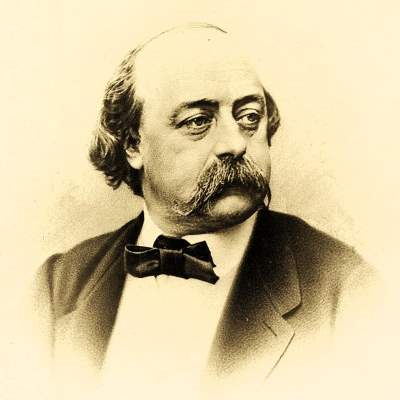
Birthdate: 12th December 1821
Nationality: French
Bio:
While still young, Gustave Flaubert showed an intense passion for reading and writing that would shape the rest of his life. Born in 1821 in Normandy, France, he was largely self-educated in his youth as he voraciously consumed literature from authors like Byron and Shakespeare. Flaubert in particular admired the realism of Balzac and sought to perfect his own style of intensive descriptive prose. His first major work would become Madame Bovary, published in 1857 to both scandal and acclaim for its unflinching portrayal of provincial life and sexuality.
Despite facing charges of obscenity for the novel, Flaubert refused to compromise his artist sensibilities. He believed passionately that authors should observe life from a distance without prejudice, representing all classes and viewpoints with equal care. This approach required painstaking research and revision to achieve what Flaubert called “le mot juste” – finding the perfect word, phrase or image. He would labor for years on his works to ensure realistic every detail down to the period costumes, furniture and setting. This devotion resulted in masterworks like Sentimental Education and Bouvard and Pécuchet notable for their psychological complexity and attention to the mundane realities of everyday French lives.
While prolific in his writing, Flaubert also lived a rather solitary and reclusive life. He never married and seemed most at peace when secluded at his home in Croisset along the Seine River, where he could fully immerse himself in his latest projects. Flaubert also valued literary criticism among friends and maintained a stimulating correspondence with many prominent authors of his day like George Sand. At the same time, he struggled privately with epilepsy and melancholic bouts of self-doubt that plagued his writing process. However, through dedication and perseverance Flaubert managed to publish multiple acclaimed novels and short stories in his lifetime that would come to define literary realism.
Even after his passing in 1880, Flaubert remains a profoundly influential figure to this day. His devotion to detail and representation of stark realities in an objective, detached style paved the way for 20th century modernism. Additionally, Flaubert’s works are still widely read and continue provoking discussion on topics like institutional power, gender issues and the individual’s place in society. He left an indelible mark not just on literature but also on subsequent generations who have found in his writing a sympathetic voice to the quiet desperation inside lives externally inconsequential yet deeply felt. Flaubert’s place as one of France’s truly great authors is cemented through the enduring impacts of his realistic genius.

